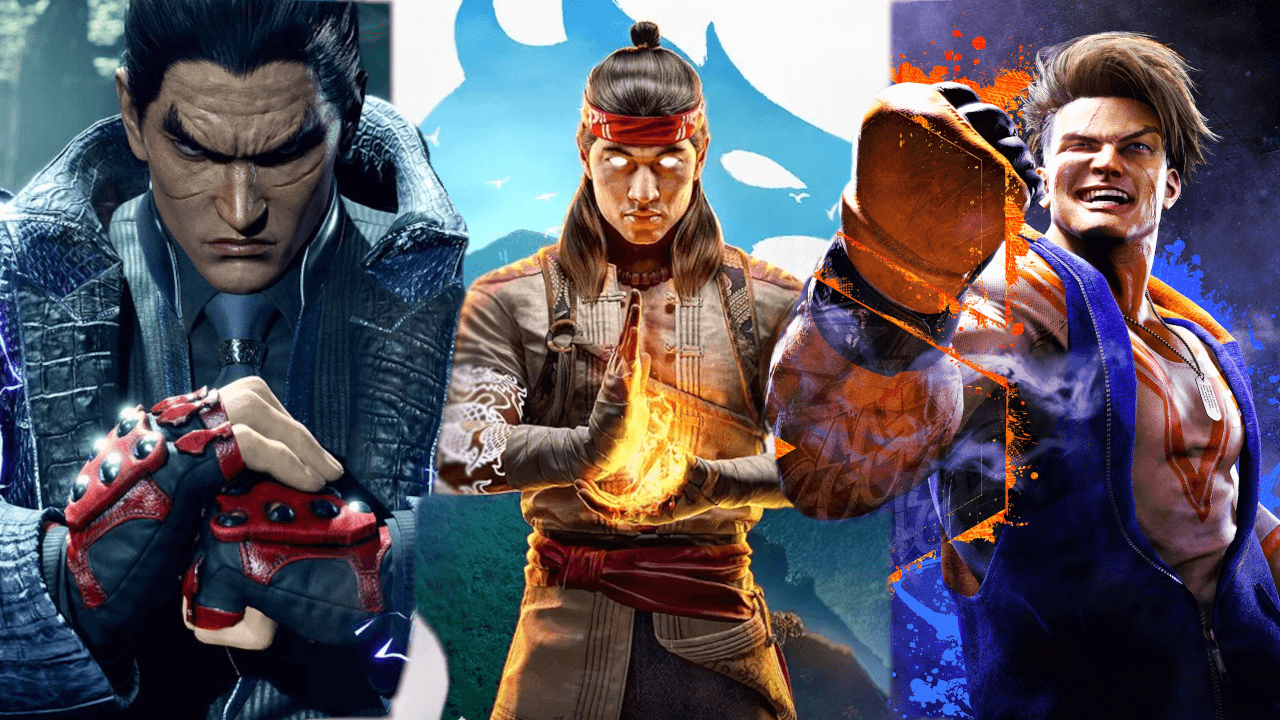There is no single thing that will propel a player up the rankings in a fighting game. No amount of hours grinding away at the rank ladder will give you the improvements you seek unless you are also implementing good changes to your playstyle.
The following tips will help you get a good baseline understanding of how to improve at Fighting Games. Still, the ultimate challenge is to put these into practice and adapt to the ever-rising skill level of your opponents as you improve.
10. Stick To a Character
A Swiss knife might be a good tool, but it's also not the best knife for a chef. To get cooking in fighting games, you must stick to a character and ensure your understanding of them is complete. Feel free to experiment with characters and their movesets, watch streamers and pro players play a variety of fighters, but then make sure to commit to one character.
There are several top players that can swap their characters around; MenaRD's ability to move around Street Fighter 6 characters, for example. But these elite players have an insane wealth of knowledge that takes years to develop.
The more you can apply yourself to a single character, the better you will be, and in the process of learning the matchups of said character, the more you will develop a natural understanding of the wider game. Incidentally, if you are looking for a detailed guide for your character, consider checking out DhasFight's YouTube channel for pro player guides on Tekken 8 and Mortal Kombat 1 characters.
9. Use Training Modes
People hate to do it; it feels boring and useless, and it's not impressive or fun to look at. But training modes, sitting there practicing combos, frames traps, mixups, strings, and on, is a critical component that enables many of the mind-blowing fights you see at major stages like Evo.
A full round of Tekken, Street Fighter, or Mortal Kombat is just a set of more minor skirmishes that stack up on each other, with one player ending up on top. If you practice the smaller steps, the flawless blocks, the rage arts timings, the complex strings, the easier it will be to pull those off in a real game scenario.
8. Radical Franchise Changes Are Rare
Even among fighting games, fundamental changes to mechanics that have existed in the franchise are rare. More often than not, what we see is the addition of mechanics where none existed before. Rage in Tekken 8, Kameos in Mortal Kombat 1, and so on.
Unless your name starts with L and ends in effen, you should probably stick to one franchise as a platform to build good habits. Jumping around titles can be a fun experience to enjoy the different flavors of the FGC, but if you are targeting higher levels of competition, mixing and matching your practice to the dozens of different approaches will do you no well.
7. Learn The Frame Data
Numbers, we all love them; although mathematicians would tell you they love numbers the most in the real world, it is fighting games pro players who will spend countless evenings digging through frame data to find incremental improvements for not just their character, not just a specific matchup, but for a particular interaction that arises in the said matchup.
Does that sound exhausting? Yes, but thankfully for the vast majority of players, frame data is a lot easier to digest, and it's also the rare common feature among all fighting games. Once you internalize how to frame data work, how to read an interaction from that perspective and figure out how it affects your own gameplay, then you are done; you can translate it to other games in a matter of hours, if not less.
6. Stay On Top of The Meta
To be clear, "The Meta" is not about meta, read overpowered characters or moves. It is about the ever-churning evolution in matchups that happens naturally over the course of a game. Even without updates, balance changes, new characters, stages, or the like, players, as a collective, will develop new strategies and ideas for how to win. Games as old as Super Smash Bros Melee still develop as top players rise in the rankings with their own takes on how to win.
If you can stay up to date with these developments, especially around your character and its matchups, then you will be a step ahead of players who do not. It's a hard task, but it's one that is well worth the squeeze.
5. Find a Group To Play With
Whether it's your friends, a small group, a streamer's or pro player's community, or your nearest FGC tournament scene, surround yourself with players who also want to improve. It is not just about putting down hours of matches; talk, explain, and describe the challenges you are facing in matchups, and listen to others struggle against your own character.
This is not just a great opportunity to touch some grass, which every player should do more frequently, but also a vital part in actually improving. Making the process of getting better a social group activity will mean it's less tedious overall and will often be faster and more efficient.
4. Be Better at Defending
A hugely underrated feature of every fighting game. Just don't get hit. Wisdom from the ancient times. It's simple, it's vital, and it feels dismissive to say you should just play more defensively as if that alone will earn you a win; of course, it does not, but you do need to be good at defending to have a chance to win in the first place.
Think of it like this: if your opponent lands every hit on you, when are you supposed to land one on them? Put in the time to learn and practice not just the base-level defense but loop back to frame data and learn your gaps, counters, etc. Every small improvement you can make in defending will pay off twofold in a real match.
3. Watch & Learn
We are monkey-brained. We all like to find little patterns where none may exist and copy what others do. This is a skill that has given rise to the current contemporary world. In fighting Games, this is why you are getting ready after throwing up the same wake-up attack every time you get knocked down. Stop doing that, or do that more.
Conditioning opponents and avoiding getting conditions are fantastic skills, but they are also some of the hardest to implement in real matches. Practice and practice partners, see point 5, go a long way to help achieve this, but ultimately, it will take time against multiple opponents.
2. Review Your Matches
If you don't know what you are doing wrong, how can you improve? Watching your games back after finishing them, especially through something like the Tekken 8 replay system, is a fantastic way to spot what you could have done better. Like the other tips, this alone will not elevate your gameplay, but in combination, it will be a multiplier to all your other efforts.
You can also seek professional coaches, through services like Metafy, to sit with you are review your gameplay. These are great, but more than the direct lessons, you want to take home with you with the framework through which you can learn to improve your gameplay.
1. Keep Playing
Ultimately, the best advice anyone can give you is to continue playing. Learning anything, even fighting games, is not linear. There will be days when you suddenly jump multiple ranks over, and you feel you are the King of Iron Fist Tournament incarnate, and others when all of a sudden you drop back down, but you feel like you should be better, you are better, you are just learning the next stage up again.
It takes time and effort to make progress, and sometimes progress yields worse results now, so you can have better results later. But all of the presiding tips are there to keep you on track. As long as you are following most, ideally all, of these, you will be making some progress.






















